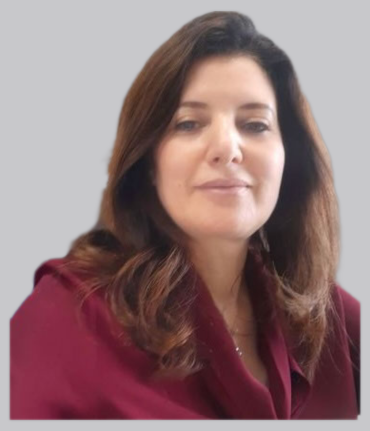
Najat Moughil
Partner at Exco ACDEN
Najat Moughil is a seasoned audit and consulting specialist, known for her expertise in consolidating accounts, implementing IFRS standards, and optimising financial processes. With a strong focus on enhancing internal controls and risk management, she excels in streamlining operations and meeting closing deadlines efficiently. Moughil also offers valuable support in project management, business ownership, and change management initiatives.
Morocco: A bold economic agenda
May 1, 2024
In recent years, Morocco has undergone significant transformations, positioning itself as a formidable player on the global stage. This strategic repositioning has not only altered perceptions of the North African nation but has also greatly influenced the landscape for doing business within its borders. Najat Moughil, Partner at Exco ACDEN discusses Morocco’s emergence as a global player has ushered in a wave of opportunities.
Morocco’s economic landscape: Europe and Africa
Positioned at the crossroads of Europe and Africa, Morocco plays a pivotal role in linking the economies of both continents, fostering trade, investment, and collaboration in various sectors. Morocco is member of the African Union and the leading investor in West Africa. Major Moroccan institutions such as
Attijariwafa Bank, Bank of Africa, and the OCP Group, a leading player in phosphate and fertiliser production, now exert significant influence in Africa.
Concerning Europe, Moroccan exports are primarily aimed at the Old Continent, comprising approximately two-thirds of the country’s total exports. Casablanca Finance City, an economic hub hosting over 200 international companies, is crucial in Morocco’s role as a bridge between Europe
and Africa. Thanks to its geographical location and political stability, strong and modern infrastructures, the implementation of ambitious sectoral strategies, highspeed industrialisation, the development of green energies and the signing of several free trade agreements with the world’s major economic players, Morocco offers a favorable environment for investing in various sectors: aeronautics, automotive, textiles, leather, agri-food and aggrotech, electronics, tourism, information technology, infrastructure and even energy.
Strategies for industrial growth
In order to strength its position as logistic hub, Morocco made important investments in logistics projects, in ports and railways. In the automotive and aeronautical sectors, Morocco’s logistical role has already grown and investments in production facilities and logistical solutions have been made. Morocco’s automotive industry, aircraft parts manufacturing and mining are traditional industries that offer important export opportunities.
Morocco is also moving forward with various policies to unleash the potential of the private sector, including reform of the vast network of public enterprises and a revision of the investment charter.
Economic impacts and infrastructural upgrades
The hosting of the 2030 World Cup will provide Morocco with a unique opportunity to extend its influence beyond the continents of Africa and Europe, as the tournament could inject up to US$ 1.2 billion into the Moroccan economy. In preparation, the country plans extensive upgrades to stadiums and
infrastructure, aiming to attract investments through incentives. Tourism is also expected to boom. Banks will benefit from increased infrastructure financing, while the telecoms sector will see higher traffic and investments in 5G technology. Despite the costs, the World Cup offers Morocco a lucrative return on investment and a lasting national legacy. Such a robust economic agenda requires the implementation of
complementary social reforms to ensure its benefits are equitably distributed and accessible.
Morocco’s strategic social policies
Amidst efforts to fortify businesses, a parallel consideration arises for initiatives aimed at enhancing the welfare and security of Moroccan households. The efforts have so far focused on the social sectors, with a landmark initiative to expand access to national health insurance and family allowance systems.
In recent months, the Moroccan government has officially launched the registration process for the Direct Social Support program. This program is devised to offer direct aid to families, particularly those in need, including school-age children, children with disabilities, newborns, economically vulnerable families, and
those supporting elderly individuals. The program’s aim to improve socioeconomic conditions will foster economic stability, benefitting businesses operating in the country.
The Moroccan authorities remain committed to an ambitious program of structural reforms designed to put Morocco on a more solid and equitable growth path.
Morocco’s sustainable journey: Leading in renewables and environmental initiatives
The government’s commitment to social welfare is paralleled by its ambitious environmental agenda. Just as the Direct Social Support program aims to uplift Moroccan households, the “Morocco Offer” seeks to elevate the country’s standing in the renewable energy sector, thereby securing a sustainable future for
all its citizens. On 11 March 2024, the Moroccan government made an official announcement unveiling the “Morocco Offer,” aimed at nurturing the growth of the green hydrogen sector. Prime Minister released a circular outlining a framework of incentives and assistance for potential project developers. This proposition targets investors keen on manufacturing green hydrogen and its byproducts and has attracted approximately a hundred domestic and international investors.
Renewable energy sector advancements
Morocco possesses significant potential for advancing its renewable energy sector, thanks to its abundance of wind and solar energy resources. With the world’s largest photovoltaic plant already in operation, the North African nation is committed to swiftly reducing its carbon footprint. Furthermore, prominent Moroccan companies such as OCP Group, demonstrate remarkable commitment to integrating renewable sources of water and energy into their production processes.
Morocco’s sustainable goals
The alternative energies, energy efficiency and the circular economy are becoming the most attractive sectors in Morocco. In 2030, the country aims to reduce its energy consumption by 15% and to reach 52% of renewables in its power capacity.
Morocco’s strategic repositioning as a global player has significantly transformed its business landscape, attracting an influx of international investors. With many projects in progress, such as the gas pipeline between Nigeria and Morocco, the country is poised to become an even more significant player on the global stage.
If you would like to speak to one of our experts in Morocco, please get in touch.

